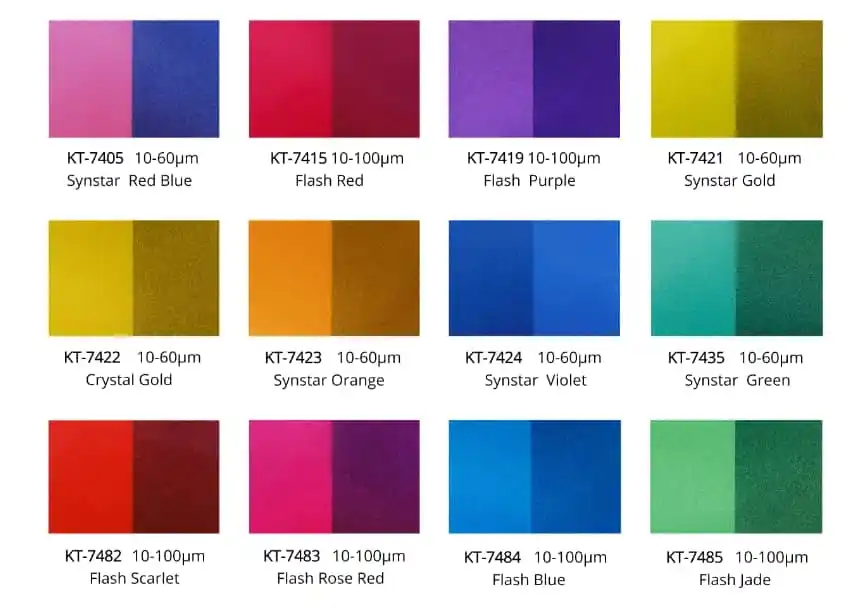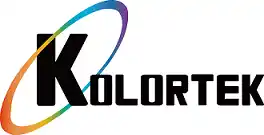Top 10 Mica Powder Suppliers for Wholesale Success in 2024
March 12th, 2024In today’s rapidly evolving market, the quest for materials that blend functionality with aesthetics is more crucial than ever. Mica powder, a gem in the realm of industrial and artistic materials, stands out for its unparalleled versatility and beauty. However, the journey to source mica powder ethically and sustainably poses a complex challenge for businesses aiming to excel in various industries, including cosmetics, coatings, and construction. Our comprehensive guide meticulously unveils the top 10 mica powder suppliers for 2024, crafted to empower your business with strategic insights for wholesale success.
Introduction to Mica Powder and Its Importance in Various Industries:
Mica powder is a naturally occurring mineral dust often used in a variety of industrial and artistic applications due to its unique physical and chemical properties. It is derived from mica minerals, which are silicate minerals known for their layered or sheet-like structure. This structural quality allows mica to be ground down into a fine powder that retains a shimmering, pearlescent effect, making it highly sought after in industries that require both functional and aesthetic enhancements. Growing demand for specialty effect pigments further underscores the importance of mica powder in enhancing the visual appeal of products across a wide range of industries. One of the defining characteristics of mica powder is its ability to withstand high temperatures, resist electrical conductivity, and offer a barrier against ultraviolet light. These properties make it an indispensable component in the manufacturing of paints and coatings, providing durability, protection, and color vibrancy to various surfaces. Mica powder’s reflective and refractive qualities also add depth, shimmer, and shine, elevating the aesthetic appeal of products, which is particularly valuable in the cosmetics industry for products like eyeshadows, lipsticks, and foundation.
In the realm of plastics and rubber, mica powder contributes significantly to the mechanical strength and performance of these materials. By acting as a filler, it enhances the flexibility, resilience, and durability of plastics and rubber products, reducing warping and improving heat resistance. This makes it essential for producing high-quality automotive parts, household appliances, and electronic casings.
Moreover, mica powder’s versatility extends to industries such as construction and electronics. In construction, it is used in cement and gypsum products for its fire-resistant qualities, improving the safety and longevity of buildings. In electronics, mica powder serves as an insulating material in capacitors and cables, safeguarding against electrical failures and enhancing the reliability of electronic devices.
The significance of mica powder in these diverse industries cannot be overstated. Its multifunctional properties not only improve the quality and performance of products but also contribute to the advancement of sustainable and innovative manufacturing practices. As industries continue to evolve and demand for more sophisticated materials rises, the role of mica powder as a critical component in various applications is set to grow, underscoring the need for reliable and ethical suppliers capable of meeting global demands.

Criteria for Choosing the Best Mica Powder Suppliers:
Selecting the best mica powder suppliers is a pivotal decision for any business seeking to maintain high standards of quality and ethics in their products. The right supplier does not just provide a commodity; they are a partner in the growth and reputation of your business. When evaluating potential mica powder suppliers, several critical factors come into play, ensuring that businesses can rely on their supply chain for consistency, ethical practices, and competitive advantages.
Quality of Product: The foremost criterion is the quality of the mica powder itself. High-quality mica powder should have uniform particle size, purity, and the right physical and chemical properties suited to specific industry needs. Suppliers should be able to provide detailed specifications and quality assurance tests to demonstrate their product’s compliance with industry standards. The quality of mica powder directly affects the performance, appearance, and reliability of the final products, making it crucial for suppliers to adhere to strict quality control measures.
Reliability: Dependability in supply is another cornerstone of a strong supplier relationship. Reliable suppliers ensure consistent product availability, adhering to delivery schedules and maintaining open communication about any potential disruptions. This consistency is vital for businesses to plan their production cycles effectively and avoid costly downtimes or delays.
Pricing: Competitive pricing, while maintaining quality standards, is essential for the cost-effectiveness of sourcing mica powder. Suppliers who offer transparent pricing models and can scale with your business needs contribute to a healthy bottom line. However, it’s important to consider the overall value offered by a supplier, including product quality, reliability, and additional services, rather than basing decisions on price alone.
Ethical Sourcing Practices: With increasing awareness and concern over environmental and social responsibilities, ethical sourcing practices have become a significant factor in choosing suppliers. Ethical sourcing involves ensuring that mica powder is mined and processed in a manner that respects the environment and the rights of workers, avoiding child labor, and contributing to the community’s well-being. Suppliers committed to ethical practices will often have certifications or memberships with recognized industry bodies that audit and verify their sourcing methods.
Customer Service: Exceptional customer service is indicative of a supplier’s dedication to their clients’ success. This includes not just responsive communication and technical support, but also a willingness to understand and adapt to your business’s specific needs. Suppliers who offer tailored solutions, product innovation support, and are proactive in addressing concerns can significantly enhance the value they bring to your business.
In sum, choosing the best mica powder suppliers requires a comprehensive evaluation of their quality of product, reliability, pricing, ethical sourcing practices, and customer service. These criteria are intertwined, each playing a crucial role in ensuring that the supplier you choose aligns with your business values, operational needs, and long-term goals, thereby fostering a successful and sustainable partnership.
The Top 10 Mica Powder Suppliers in 2024:
There are many excellent pigment manufacturers in the global pigment market. This article lists some of them for your reference. These companies are currently the most important market leaders.
- Kolortek – Renowned for its broad spectrum of effect pigments, Kolortek caters to a myriad of industries, from cosmetics to automotive paints, with a product portfolio that dazzles. Their offerings include pearlescent, optical chameleon, glitter, luminous, and fluorescent pigments, each designed to meet the specific demands of their diverse clientele. What truly sets Kolortek apart is their unwavering commitment to quality, ethical sourcing, and environmental stewardship, making them a preferred partner for businesses striving for excellence and sustainability.
- Merck Performance Materials – Known for innovative pigment solutions, Merck Performance Materials offers effect pigments utilized across various applications, from cosmetics to coatings, highlighting their commitment to quality and innovation.
- KRONOS Worldwide, Inc. – Specializing in titanium dioxide pigments, KRONOS provides products that enhance the brightness and durability of mica powder applications across several industries.
- Clariant – As a leader in specialty chemicals, Clariant produces a spectrum of pigments, including those based on mica, catering to sectors such as plastics, coatings, and cosmetics, underscoring their industry leadership.
- The Chemours Company – Involved in the production of titanium dioxide and other performance chemicals, Chemours plays a crucial role in the pigment industry, including mica powder applications.
- BASF SE – With a comprehensive portfolio that includes pigments, resins, and additives, BASF improves the performance and appearance of mica powders in various applications, showcasing their wide-ranging expertise.
- Sudarshan Chemical Industries Ltd. – Offering high-performance pigments and pigment dispersions, Sudarshan serves the coatings, plastics, inks, and cosmetics industries with over six decades of experience.
- DIC Corporation – A leading global manufacturer of organic pigments, DIC Corporation delivers a broad spectrum of colors and effects, particularly for the digital display and green pigment sectors.
- Ferro Corporation – Ferro supplies specialized pigments and materials for use in glass, ceramics, electronics, and more, emphasizing innovation and quality in their product range.
- Dainichiseika Color & Chemicals Mfg. Co., Ltd. – With a focus on R&D and sustainability, Dainichiseika offers a diverse range of colorants and chemicals, catering to the packaging, automotive, and electronics industries.
These top 10 mica powder suppliers for 2024 have set themselves apart through a combination of quality products, innovation, ethical practices, and customer service. Whether it’s advancing sustainability, pushing the boundaries of color science, or delivering customized solutions, each company contributes uniquely to the global demand for high-quality pigments, ensuring their customers’ success in an ever-evolving marketplace.

Global Sourcing vs. Local Suppliers: Understanding the Pros and Cons:
When it comes to sourcing mica powder for your business, the decision between tapping into global markets or relying on local suppliers is pivotal. Integrating global and local procurement for superior supplier working relations can offer a balanced approach, leveraging the strengths of both sourcing strategies to optimize your supply chain. Each approach has its unique set of advantages and challenges, which can significantly impact your business’s efficiency, cost-effectiveness, and product quality. Here’s an analysis to help you navigate through these options.
Global Sourcing of Mica Powder: A World of Opportunities
Global sourcing, especially from countries like China, which is a major player in the mica market, offers a broad spectrum of opportunities. One of the primary benefits is cost-effectiveness. Thanks to the economies of scale and lower labor costs in countries like China, businesses can procure mica powder at significantly lower prices compared to local sources. This advantage can translate into higher profit margins or more competitive pricing for your products.
Furthermore, global sourcing opens up access to a vast variety of mica powders. Suppliers from different parts of the world can offer unique colors, qualities, and grades that might not be available locally. This variety allows businesses to innovate and diversify their product offerings, catering to a wider range of customer preferences.
However, sourcing globally is not without its challenges. The most notable concern is the longer lead times and the risk of supply chain disruptions. Logistics and transportation can be complex, involving multiple modes of transport and regulatory hurdles, leading to delays. Additionally, quality control can be more challenging to manage at a distance, requiring businesses to implement stringent quality checks or rely on third-party inspections to ensure product standards are met.
Local Suppliers: The Advantage of Proximity
On the flip side, partnering with local suppliers for mica powder brings its own set of advantages, chief among them being shorter lead times. With geographical proximity, businesses can enjoy faster delivery times, reducing the need for extensive inventory holding and enabling a more agile response to market demands.
Working with local suppliers also facilitates better quality control and easier communication. Being closer to the source allows businesses to build stronger relationships with their suppliers, conduct regular visits, and have more direct control over the quality of the mica powder. This close collaboration can also lead to more tailored product offerings that closely match your business needs.
However, local sourcing may come with higher costs due to higher labor and production expenses in some regions. Additionally, the range of available mica powders might be more limited compared to global sources, potentially restricting your ability to offer diverse and innovative products.
Making the Right Choice for Your Business
The decision between global sourcing and local suppliers for mica powder hinges on a balance between cost, quality, variety, and supply chain reliability. For businesses looking to minimize costs and maximize product diversity, global sourcing is an attractive option. Meanwhile, companies prioritizing quick market response, quality control, and supplier relationships might find more value in local sourcing.
Ultimately, a hybrid approach, leveraging the strengths of both global and local sourcing, may offer the most strategic advantage. By diversifying your supply chain, you can minimize risks, ensure a steady supply of mica powder, and maintain the flexibility to adapt to market changes and customer demands.
Certifications and Standards for Quality Mica Powder:
When it comes to sourcing mica powder, whether for cosmetics, coatings, plastics, or other applications, the importance of quality and safety cannot be overstated. This is where certifications and industry standards come into play, serving as benchmarks that assure buyers and end-users of the product’s reliability, safety, and ethical sourcing. Certifications like ISO (International Organization for Standardization), along with specific industry standards, play a crucial role in the mica powder market by setting clear guidelines and expectations for product quality, environmental management, and labor practices.
ISO certifications, for example, are internationally recognized and cover various aspects of production, quality management, and environmental impact. An ISO 9001 certification, which focuses on quality management systems, assures that the manufacturer has processes in place to consistently meet customer and regulatory requirements, enhancing customer satisfaction. Similarly, ISO 14001, which focuses on environmental management systems, demonstrates a company’s commitment to minimizing its environmental footprint and complying with applicable laws and regulations.
For industries that utilize mica powder, such as the cosmetics industry, additional certifications and standards may apply. These can include certifications that ensure the ethical sourcing of mica, free from child labor and poor working conditions, which have been concerns in some mica-mining regions. Compliance with standards like the Responsible Mica Initiative (RMI) or similar can be a testament to a company’s commitment to ethical sourcing practices.
Moreover, in sectors where product safety is paramount, certifications related to product safety and compliance, such as REACH (Registration, Evaluation, Authorisation, and Restriction of Chemicals) in the European Union, ensure that the mica powder does not contain harmful substances in concentrations that could pose health risks to consumers. For the cosmetics industry, adherence to the FDA (Food and Drug Administration) guidelines in the United States or the EC Regulation 1223/2009 in the European Union is essential for ensuring that the mica powder used in products is safe for human use.
These certifications and standards are not just formalities; they provide a framework for continuous improvement, risk management, and innovation. They help manufacturers identify and control the environmental and social impacts of their operations, improve efficiency and reduce waste, and ensure the safety and quality of their products. For companies importing mica powder, selecting suppliers who meet these certifications and standards can mitigate risk, enhance brand reputation, and ensure compliance with global regulatory requirements.
In conclusion, certifications and industry standards are indispensable tools in the global mica powder market. They not only ensure the quality and safety of the products but also promote ethical, environmental, and social responsibility in the supply chain. For businesses looking to source mica powder, prioritizing suppliers that adhere to these certifications and standards can be a wise strategy, aligning with consumer expectations and regulatory demands, while contributing to a more sustainable and responsible global market.
